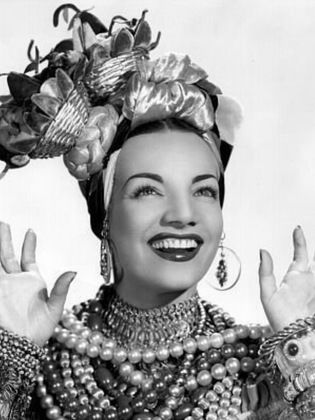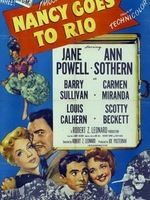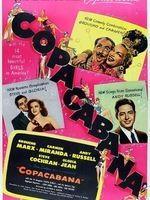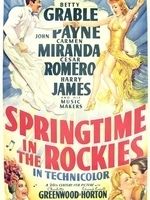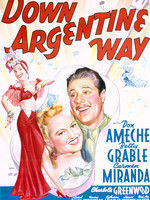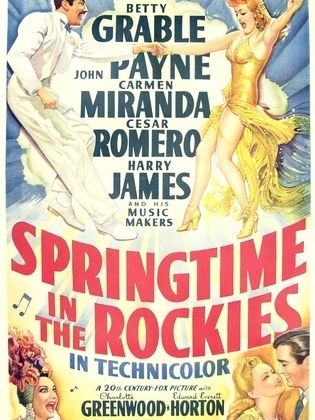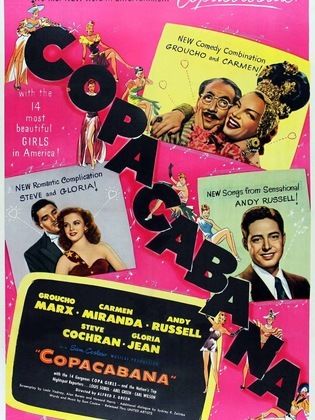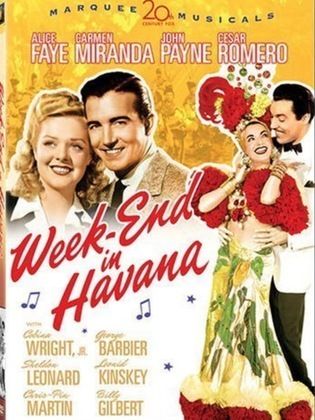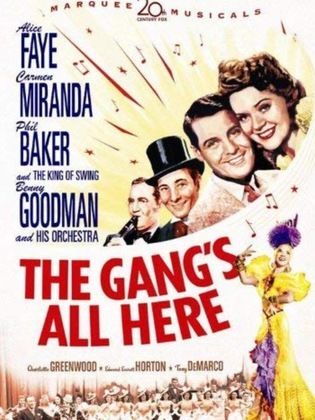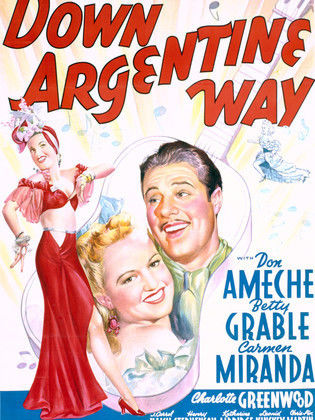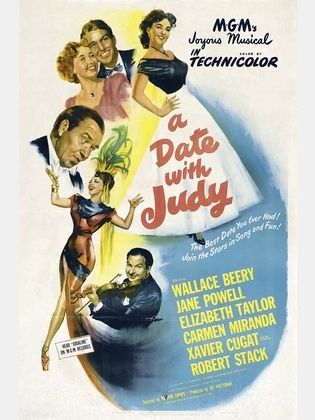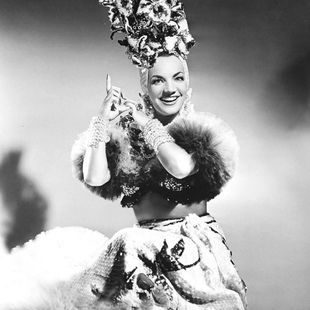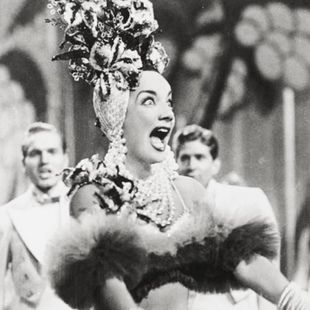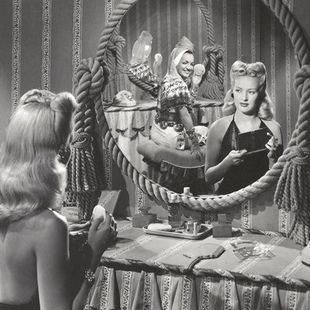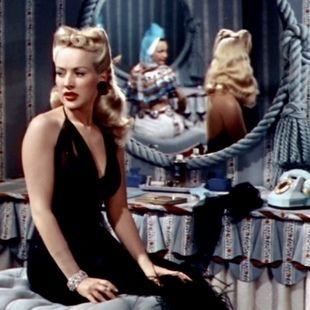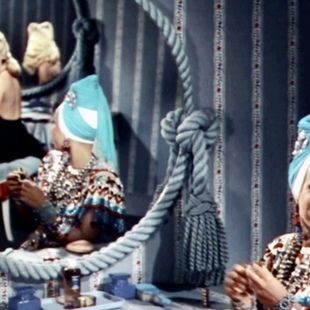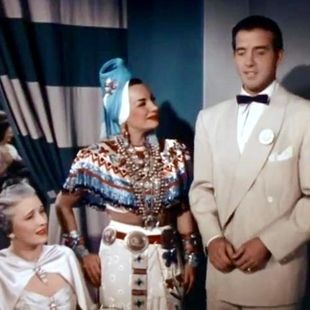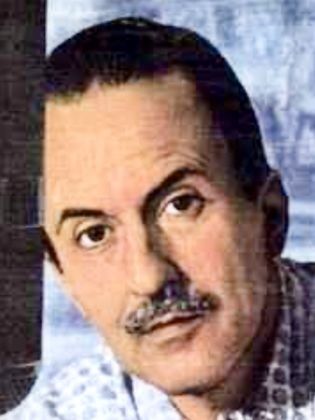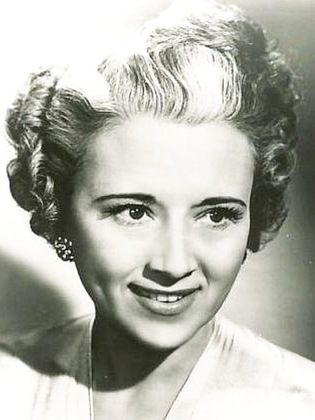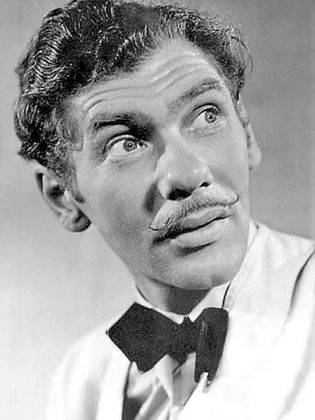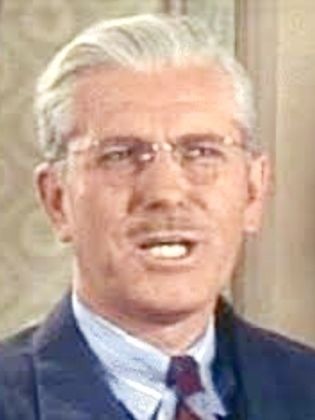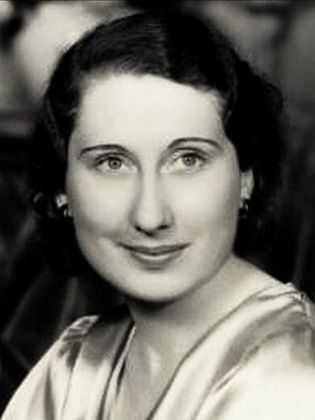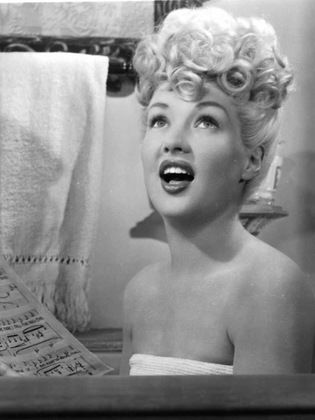Carmen Miranda (1909 - 1955) كارمن ميراندا
Biography
A Portuguese singer and dancer, born in Marco de Canaves, Portugal, as Maria do Carmo Miranda da Cunha. Miranda received a star on the Hollywood Walk of Fame in 1969 for her film work. She married production assistant Dave Sebastian in 1947 and remained with him until she died in...Read more 1955. Her credits include Copacabana (1947), The Gang's All Here (1943), Something for the Boys (1944), and Greenwich Village (1944). Shortly after Carmen Miranda's birth, the family moved to Brazil, settling in Rio de Janeiro, where her father opened a business there. Carmen did not finish school but joined a fashion store and became a small fashion designer. She was invited to showcase her singing talents at the Academy of Music, and she became a famous singer in nightclubs and on local Brazilian radio. She signed a contract with RCA Company, and by 1928, she became a popular singer in Brazil. In 1933, she participated in a documentary film then she made her first feature film Brazil, Alo, Alo, Brasil (1935). Carmen continued to sing and dance in Brazil, and her last film was Banana-da-Terra (1939), which caused a great stir in the newspapers. It was her motivation to move to New York to try to win the hearts of Americans. She appeared in some Broadway musicals, and she excelled in singing and dancing. In 1940, she signed a contract with Fox Films, and her popularity increased among Americans. She suffered a heart attack but did not care about it until she died in Beverly Hills, Los Angeles, California, USA, on August 5, 1955.
-
- Nationality:
- Portugal
-
- Date of Birth:
- 9 February 1909
-
- Birth Country:
- Portugal
-
- Death Country:
- US
Watch Online (Sponsored By Yango Play)
-
-
- Al Shater
- 2025 - Movie
-
-
- Rocky El Ghalaba
- 2025 - Movie
-
-
- Ward w Shokolata
- 2025 - Series
-
-
- One Last Sin
- 2025 - Series
-
-
- 2 Qahwa
- 2025 - Series
-
-
- Siko Siko
- 2025 - Movie
Known for
(According to views)
More details
A Portuguese singer and dancer, born in Marco de Canaves, Portugal, as Maria do Carmo Miranda da Cunha. Miranda received a star on the Hollywood Walk of Fame in 1969 for her film...Read more work. She married production assistant Dave Sebastian in 1947 and remained with him until she died in 1955. Her credits include Copacabana (1947), The Gang's All Here (1943), Something for the Boys (1944), and Greenwich Village (1944). Shortly after Carmen Miranda's birth, the family moved to Brazil, settling in Rio de Janeiro, where her father opened a business there. Carmen did not finish school but joined a fashion store and became a small fashion designer. She was invited to showcase her singing talents at the Academy of Music, and she became a famous singer in nightclubs and on local Brazilian radio. She signed a contract with RCA Company, and by 1928, she became a popular singer in Brazil. In 1933, she participated in a documentary film then she made her first feature film Brazil, Alo, Alo, Brasil (1935). Carmen continued to sing and dance in Brazil, and her last film was Banana-da-Terra (1939), which caused a great stir in the newspapers. It was her motivation to move to New York to try to win the hearts of Americans. She appeared in some Broadway musicals, and she excelled in singing and dancing. In 1940, she signed a contract with Fox Films, and her popularity increased among Americans. She suffered a heart attack but did not care about it until she died in Beverly Hills, Los Angeles, California, USA, on August 5, 1955.
- Nationality:
- Portugal
- Birth Name:
- Maria do Carmo Miranda da Cunha
- Nickname:
- القنبلة البرازيلية / بيكونا نوتافيل
- Nickname in English:
- The Brazilian Bombshell / A Pequena Notavel
- Date of Birth:
- 9 February 1909
- Birth Country:
- Portugal
- Birth City:
- Porto
- Death Country:
- US
- Death City:
- California

